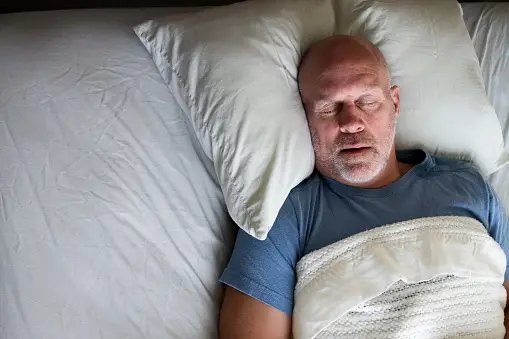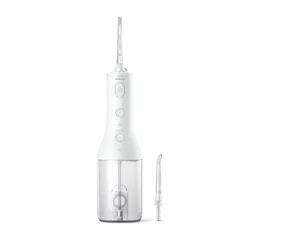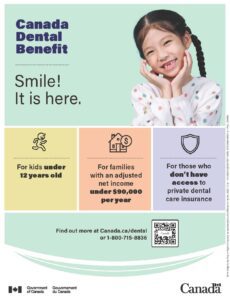Prevent snoring by maintaining a healthy weight and sleeping on your side. Avoid alcohol before bedtime as it can exacerbate the condition.
Snoring—a common issue affecting countless individuals—can disrupt sleep quality and strain relationships. It’s not just the noise that’s bothersome; snoring can be a symptom of underlying health conditions, such as obstructive sleep apnea. A well-rounded approach to prevention includes lifestyle changes, strategic sleeping positions, and possibly medical interventions.
Staying within a healthy weight range reduces throat constriction, while side-sleeping prevents the tongue from blocking the airway, which is often a cause of snoring. Establishing a regular sleep routine, avoiding sedatives, and using nasal strips or an anti-snoring device are additional measures one can take. By understanding and addressing the factors contributing to snoring, individuals can enjoy a quieter, more restorative night’s sleep.

By addressing these contributors, one can often reduce or even eliminate snoring. Solutions include lifestyle adjustments, medical interventions, and in some cases, simple behavior modifications. The journey towards a quieter night starts with understanding the science behind snoring and its complex interplay with our daily lives.
Make sure your sleep environment is set up to encourage a proper position. Use supportive pillows or special anti-snore devices that promote side sleeping or elevate your head, creating an optimal posture for clear breathing.
Consistency with these home remedies can lead to a gradual but notable reduction in snoring. It’s crucial to stick with these solutions and observe their effectiveness over time.
It’s important for individuals considering surgical intervention to discuss the potential risks and success rates with specialists. Surgeries vary from minimally invasive to more extensive procedures, and the choice largely depends on the specific anatomy and needs of the snorer.

The Science Of Snoring
The Science of Snoring involves a fascinating exploration into the nocturnal symphonies that many individuals unintentionally compose. Understanding why snoring occurs is not just about comfort or relationship harmony; it’s a window into the complexities of the human body. As we delve deeper into the anatomical and physiological aspects that contribute to snoring, remarkable insights emerge, empowering individuals to find solutions that could lead to a quieter, more restful night for everyone involved.Anatomy Of The Upper Airway
The upper airway consists of several structures which, when not functioning optimally, can lead to the rumbles and roars of snoring. Starting from the nasal passages, down to the throat, and ending at the vocal cords, the upper airway is a critical air passageway. The anatomy includes:- Nasal Passages: Allow for the inhalation and filtration of air.
- Pharynx: Connects the nose and mouth to the esophagus and larynx.
- Soft Palate: The soft tissue constituting the back of the roof of the mouth.
- Uvula: The dangling tissue seen at the back of the throat.
- Tongue: Assists in swallowing but can obstruct the airway when relaxed.
- Tonsils and Adenoids: Lymphatic tissue that can enlarge and block airflow.
Contributing Factors To Snoring
Certain factors increase the likelihood of snoring. These can be lifestyle-related, anatomical, or even due to certain health conditions:| Anatomical Factors | Lifestyle Factors | Health Conditions |
| Enlarged tonsils/adenoids | Alcohol consumption | Obstructive Sleep Apnea (OSA) |
| Deviated septum | Excessive weight | Allergies |
| Narrow airway | Smoking | Congestion from colds |
| Menopause | Poor sleep posture | Hypothyroidism |
| Age-related muscle tone reduction | Use of sedatives/benzodiazepines | Nasal polyps |
Lifestyle Changes
Snoring isn’t just a nuisance to your bed partner; it can also be a harbinger of deeper health issues. Fortunately, lifestyle changes are among the most effective strategies to prevent snoring. By addressing common factors like body weight and sleep posture, you can improve your sleep quality and reduce snoring. Let’s explore these adjustments in detail to help you enjoy a quieter, more restful night.Weight Management
Maintaining a healthy weight is crucial for snoring prevention. Extra pounds can lead to bulky throat tissue, which can narrow your airways and trigger snoring. Initiating a weight loss regimen can lighten this tissue and minimize snoring. Consider the following tips:- Eat a balanced diet low in saturated fats and high in fiber.
- Include regular exercise in your routine.
- Reduce portion sizes and avoid eating late at night to enhance digestion.
Sleeping Position
Your sleeping position can have a significant impact on snoring. For some individuals, sleeping on their back can cause the tongue and soft palate to collapse to the back of the throat, obstructing the airway and causing snoring. Consider these adjustments:| Position | Beneficial Effects on Snoring |
| Side Sleeping | Helps keep the airways open and reduces the risk of tongue and soft tissue collapse. |
| Elevated Head Position | Reduces nasal congestion and may improve airway alignment. |
| Fetal Position | Can alleviate pressure on the airways and minimize snoring. |
Home Remedies
Snoring is a common problem that affects many and can disrupt a good night’s sleep for both the snorer and their partner. Fortunately, several home remedies can help prevent snoring and improve sleep quality. These methods are non-invasive, cost-effective, and often widely accessible, making them an excellent first step in combating nighttime disturbances.Nasal Strips
One of the simplest ways to alleviate snoring is through the use of nasal strips. They work by gently widening the nostrils, which can improve airflow and reduce the vibrations that lead to snoring. Applying a nasal strip before bed is easy:- Cleanse the nose to ensure the strip adheres properly.
- Place the strip across the bridge of the nose following the product instructions.
- Enjoy a more peaceful sleep with clear nasal passages.
Humidifiers
Dry air can irritate the nasal and throat membranes, exacerbating snoring. A humidifier in the sleeping area can introduce moisture back into the air, creating a more conducive environment for smoother breathing. Steps to use a humidifier for snoring prevention include:- Fill the humidifier with clean water.
- Place it in your bedroom, ideally close to the bed.
- Turn it on before sleep, adjusting settings for optimal humidity levels.
Oral Appliances
For those looking for a direct approach, oral appliances designed for snoring prevention can be an effective remedy. These devices are similar to a mouthguard and work by gently repositioning the jaw or tongue to keep the airway open. To benefit from an oral appliance:| Step | Instructions |
| 1 | Consult a dentist to get a custom-fitted appliance. |
| 2 | Wear the appliance as directed, typically during sleep. |
| 3 | Regularly clean the appliance according to the provider’s guidelines. |
Medical Interventions
Wrestling with the nightly inconvenience of snoring can be a serious struggle, both for the snorer and their bed partner. While lifestyle changes and home remedies often help, certain persistent cases demand more assertive medical intervention. These scientifically-backed treatments aim to address the root causes of snoring and usually provide a more permanent solution. In this section, we dive into the advanced options available for those searching for a peaceful night’s sleep.Continuous Positive Airway Pressure (CPAP) Therapy
CPAP therapy is a frontline treatment for obstructive sleep apnea (OSA), a common culprit behind snoring. This therapy involves wearing a mask over the nose, or nose and mouth while sleeping. The mask is connected to a machine that provides a steady stream of air to keep the airways open throughout the night.- Effectiveness: In most cases, CPAP is highly effective in eliminating snoring caused by OSA.
- Adjustment Period: Users may need time to get accustomed to the sensation of wearing a mask to bed.
- Additional Benefits: Reduces risks associated with sleep apnea, including high blood pressure and heart disease.
Surgical Options
Surgery can be a viable option for treating snoring prevention when other, less invasive methods have failed. Several surgical procedures exist, each targeting different anatomical causes of snoring prevention. The goal is to remove or tighten tissue in the airway, making it less likely to vibrate and cause snoring.| Procedure | Description | Recovery Time |
| Uvulopalatopharyngoplasty (UPPP) | Removes excess tissue from the throat. | Several weeks |
| Laser-assisted uvulopalatoplasty (LAUP) | Uses a laser to shorten the uvula and make small cuts in the palate. | 1-2 weeks |
| Radiofrequency ablation (RFA) | Low-level radio waves are used to shrink tissue in the tongue or soft palate. | A few days to 1 week |
| Palatal implants | Small plastic rods are implanted in the soft palate to prevent collapse. | Minimal |
Alternative Therapies
Exploring the realm of alternative therapies opens up new possibilities for those seeking relief from snoring prevention. Traditional treatments may not always suit everyone, and that’s where these unconventional strategies step in to offer a breath of fresh air. Let’s delve into two interesting options: acupuncture and hypnosis, and discover how they could potentially silence the snores and enhance sleep quality.Acupuncture
Acupuncture, a pillar of traditional Chinese medicine, involves the insertion of thin needles into specific points of the body. This practice is believed to restore the flow of Qi and bring the body back into harmony. Regarding snoring, here’s how acupuncture might help:- Encourages relaxation of the muscles surrounding the airways
- Reduces inflammation and congestion in nasal passages
- Enhances overall respiratory function
Hypnosis
Next on the list is hypnosis. This therapy involves reaching a heightened state of awareness often referred to as a trance. Through this state, individuals are more open to suggestions for behavioral and lifestyle changes that could alleviate snoring. Highlights include:- Learning self-hypnosis techniques to promote deeper, more restful sleep
- Conditioning the mind to favor side sleeping, a position less likely to result in snoring
- Embedding subconscious cues to increase muscle tone in the upper airway
Professional Consultation
For many individuals, snoring is a cumbersome obstacle that affects their sleep quality and that of their loved ones. While some might brush it off as merely an annoyance, it’s important to understand that snoring can be a sign of underlying health issues. Seeking a professional consultation is a pivotal step in tackling this nocturnal nuisance effectively. In this context, we’ll explore the avenues for seeking professional advice, including the pivotal sleep study and consultation with healthcare providers.Sleep Study
Embarking on a sleep study, known in the medical sphere as polysomnography, is a route to comprehensively understand the factors contributing to snoring. This overnight observation delivers an in-depth insight into your sleep patterns, breathing, and brain activity. Decoded by specialists, the results can pinpoint conditions such as sleep apnea, which is often a culprit behind snoring.- Staying overnight at a sleep center or hospital.
- Being monitored by advanced equipment that measures vital signs and sleep stages.
- Receiving a detailed follow-up analysis by a sleep specialist.
Consultation With A Healthcare Provider
Snoring might sometimes be symptomatic of lifestyle choices or health conditions needing attention. Scheduling a consultation with your doctor or a healthcare provider is a wise maneuver for personalized advice. This professional can assess your snoring pattern and suggest potential treatment options or lifestyle modifications.- An evaluation of your medical history and any related symptoms.
- A physical examination, particularly focusing on the nose, mouth, throat, and neck.
- Possible recommendations for a sleep study or referral to a sleep specialist.
Frequently Asked Questions For Snoring Prevention
What Are the Common Causes Of Snoring?
Snoring is often caused by obstructions in the airway. This can result from allergies, colds, a deviated septum, or enlarged tonsils. Lifestyle factors like obesity, alcohol consumption, and sleeping on your back can also contribute to snoring.Can Certain Pillows Help Stop Snoring?
Yes, anti-snoring pillows are designed to support the neck. They keep airways open, potentially reducing snoring. They work best when combined with other snoring prevention strategies, such as side sleeping or nasal strips.How Does Weight Loss Affect Snoring?
Weight loss can significantly reduce snoring. Extra weight, especially around the neck, can tighten the airway. Losing weight often helps open up these airways, allowing for quieter, easier breathing during sleep.Is Snoring Always A Sign Of Sleep Apnea?
No, not always. While snoring can be a symptom of sleep apnea, it’s not exclusively indicative of it. However, loud, chronic snoring with gasping or choking should be evaluated by a medical professional for potential sleep apnea.Conclusion
Snoring doesn’t have to disrupt your sleep or that of loved ones. Simple lifestyle changes and remedies may make a significant difference. Remember, consistent habits and seeking medical advice when necessary can pave the way to peaceful nights. Embrace these tips for a quieter, restful slumber.
0/5
(0 Reviews)






